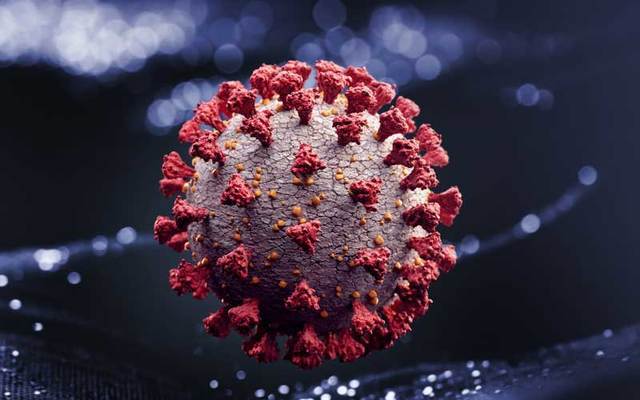An Irish company has made a game-changing surface cleaning discovery in the fight against COVID-19 and future pandemics.
Kastus, a start-up based out of the Technological University of Dublin, has pioneered groundbreaking screen technology that kills viruses on surfaces like touch-screen devices in stores and restaurants. The technology can also be used on ceramic floor tiles.
The company's antimicrobial coating has proved effective against COVID-19 as opposed to normal touch-screen devices or tiles that can act as reciprocals for the virus.
Kastus CEO John Browne explained the importance of his company's technology in an interview with the Irish Advantage.
He said that most touch-screen devices in restaurants, stores, and bars could not be satisfactorily sanitized.
"Lots of manufacturing companies were investing in screen technologies but no thought was being given to the fact that these high touch surfaces are never really sanitized. At best they may be ‘cleaned’ with a wet cloth which really only succeeds in spreading a virus."
@Kastus are excited to share that we have confirmation from an independent US based testing laboratory that Kastus is effective against Human Coronavirus! https://t.co/e50Q9tFcu4#coronavirus #covid19 #pandemic2020
— KASTUS (@Kastus) May 1, 2020
Kastus's patented technology works by using a mixture of moisture and light to create something called oxygen radicals. Oxygen radicals are a type of unstable molecule that attaches to bacteria and viruses and kills them.
Read more: Irish scientist developing COVID-19 vaccine with US military
Browne told the Irish Advantage how the technology works.
"When asked to explain how our technology works, I tend to try to visualise that at a very tiny level the surface is fizzing, using an infinite fuel source which means that it is always on, always working," Browne said.
The antimicrobial coating is sprayed on during the manufacturing process to form a thin film around the screen that protects it from viruses and bacteria.
Kastus has been developing the technology over the last decade which was initially designed to combat superbugs like MRSA. However, the Irish company tested its product on the coronavirus in US laboratories last month and it proved to be equally effective against the novel virus.
Browne said that Kastus did not have to alter its technology to fight the coronavirus.
"We had a strong degree of confidence that it would work against coronavirus too, and it does."
The company is already working with tile manufacturers to make floor tiles for home, commercial and healthcare settings and Browne says that Kastus technology will soon become the industry standard for floor tiles across the world.
Kastus is ready to manufacture its antimicrobial coat at a large scale to meet demand, even though the product's chemistry is quite complex, Browne said.
He said that inquiries about the technology have "gone through the roof" since April when tests proved it could kill the coronavirus.
For Browne, it is a vindication of a decade-long goal to develop antimicrobial coats to kill infections and viruses. The Irishman was introduced to the concept at a time when touch-screen technology had yet to really take off.
"When I spoke about the value of antimicrobial glass, people thought I was nuts. But I could see the way the world was progressing with a clear move towards touch screen," he said.
His company has invested more than €1 million ($1.1 million) into a patent for its technology over the past few years to protect itself against competitors. Browne said that it was difficult to fund the patent in the start-up's formative years due to a lack of revenue and that he questioned whether it was worth doing.
"I questioned my sanity," he said.
However, it seems as though that gamble has now paid off after the company pioneered unique technology that will be in high demand around the world from now on.
The company already works with US company Zagg to produce screen protectors for tablets and smartphones and Oman tile manufacturers Al Maha Ceramics. The company is anticipating a host of new clients in light of its recent discovery.
Browne reflected on the newfound success that has come at a time of loss and tragedy.
"We are very conscious that there is a tragic human cost, as well as an economic cost, to the pandemic. It’s nice to be part of a ‘good news’ story right now."
Read more: Dublin scientists develop Covid-19 virus killing robot




Comments